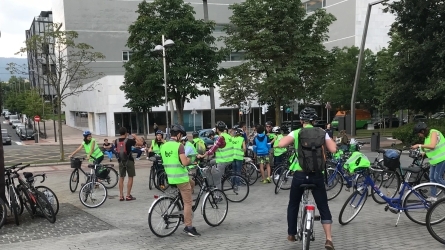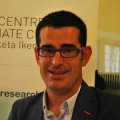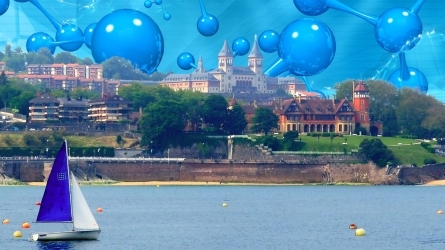
Transformation, Adaptation and Mitigation for a 1.5 degree Global Warming
Description
This year we run the 10th edition of the BC3-UPV/EHU Summer School on Climate Change that started in July 2010, when the international community was in the search of a successor agreement to the Kyoto Protocol, following a non-binding Copenhagen Accord put forth in 2009. Since then, the Summer School has covered a wide range of topics from an interdisciplinary perspective and has closely followed the international negotiations on climate change. Two years ago, the Summer School focused on the factors behind the paradigm shift in international policymaking, which eventually led to the Paris Agreement. Then, the US government’s decision to back out the agreement led to a “climate of uncertainty” that constituted the main topic discussed in last year’s edition. This year the debate is spurred by the landmark report by the UN Intergovernmental Panel on Climate Change (IPCC) released on October 2018 stating that urgent action has to be taken in the next twelve years for global warming to be kept to a maximum of 1.5°C in order to avoid catastrophic environmental and economic consequences.
In recent years, there is mounting evidence that current production and consumption patterns and policies are conducting the global economy to cross critical ecological planetary boundaries and that important social, economic and institutional transitions will have to take place. Growing recognition of the need for rapid and substantial change to address global warming has led to the emergence of the concept of transformation. The scale of the challenge has generated terms such as The Great Transition and The Great Transformation, although we still lack a shared understanding amongst the very diverse social agents on what those changes will mean or require. Thus, the first day of the Summer School will help expand our thinking and open up the dialogue about transitions and what it means to reshape the way in which people live and contribute to climate stabilization.
Another lesson learned by the international scientific community in the past few years is that special attention needs to be paid to the impacts of climate change on cities and their unique mitigation and adaptation challenges and opportunities. Such is the level of consensus in this matter that this special focus will be present in all IPCCs 6th Assessment Report processes and a Special Report on Climate Change and Cities will be included in the 7th Assessment Report (2023-2028). Thus, the second day of the Summer School will deal with adaptation strategies in cities.
Finally, the third and last day of the Summer School will focus on instrument choice, design and implementation of accelerated mitigation policies for limiting global temperature rise to 1.5 ºC.
Objectives
Understanding of the climate stabilization challenge from a multidisciplinary perspective.
Activity directed to
- University students
- Non-university students
- Teachers
- Professionals
- All public
- Researchers
Directors
Alberto Ansuategi is Doctor of Philosophy (PhD) in Environmental Economics from the University of York (Department of Environmental Economics and Environmental Management). Currently he is a member of the Institute of Public Economics and Associate Professor in the Department of Economic Analysis I, UPV / EHU and Director of the Low Carbon Programme, joint research initiative between the UPV / EHU and the Basque Centre for Climate Change (BC3) and sponsored by the Repsol Foundation. His main research and publications in international journals include contributions to the analysis of the relationship between economic growth and environmental quality, management of fisheries resources and the use of economic instruments to promote energy efficiency and tackling climate change. As for his participation in research projects and networks at European level on issues related to marine economy it should highlighted his participation in the ELME project between 2012 and 2014.

Ibon Galarraga Gallastegui
BC3, Basque Centre for Climate Change, Senior Researcher
BC3 Basque Centre for Climate Change Ph.D. in Economics (Environmental Economics) from the University of Bath (UK), M.A. Economics at the University of Essex (UK) and B.A. Economics (speciality of International Economics and Development) at the University of Basque Country. He has worked as an environmental consultant for many years for both public and private clients such as the World Bank, the Department for International Development of the British Government or the Basque Government. He was co-founder of a consultancy company. Ibon taught microeconomics and macroeconomics at the University of Bath and Economic Policy at the University of Deusto.
Registration fees
| Registration | Until 15-06-2019 | Until 05-07-2019 |
|---|---|---|
| 95,00 EUR | 125,00 EUR | |
| 0 EUR | 0 EUR | |
| 0 EUR | 0 EUR | |
| 0 EUR | 0 EUR |
Venue
Bizkaia Aretoa-UPV/EHU
Avenida Abandoibarra, 3. 48009- Bilbao
Bizkaia
Bizkaia Aretoa-UPV/EHU
Avenida Abandoibarra, 3. 48009- Bilbao
Bizkaia







